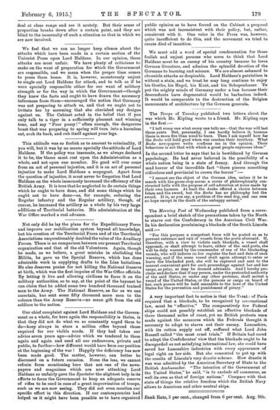A very important fact to notice is that the neat/
of Paris required that a blockade, to be recognized by international law, must be "effective." The comparatively few Federal ships could. not possibly establish an effective blockade of three thousand miles of coast, yet no British protests were made against the measures which the Federals thought it necessary to adopt to starve out their enemy. Lancashire, with its cotton supply cut off, suffered what Lord John Russell called "the most cruel trials." If Britain had cared to adopt the Confederates' view that the blockade ought to be disregarded as not satisfying international law, she could have saved her Lancashire industries with every appearance of legal right on her side. But she consented to put up with the results of Lincoln's very drastic scheme. How drastic it was was admitted by the American Secretary of State to the British Ambassador. "The intention of the Government of the United States," he said, "is to exclude all commerce, as well its own as that of foreign nations." Compare with that state of things the relative freedom which the British Navy allows to American and other neutral ships.






































 Previous page
Previous page